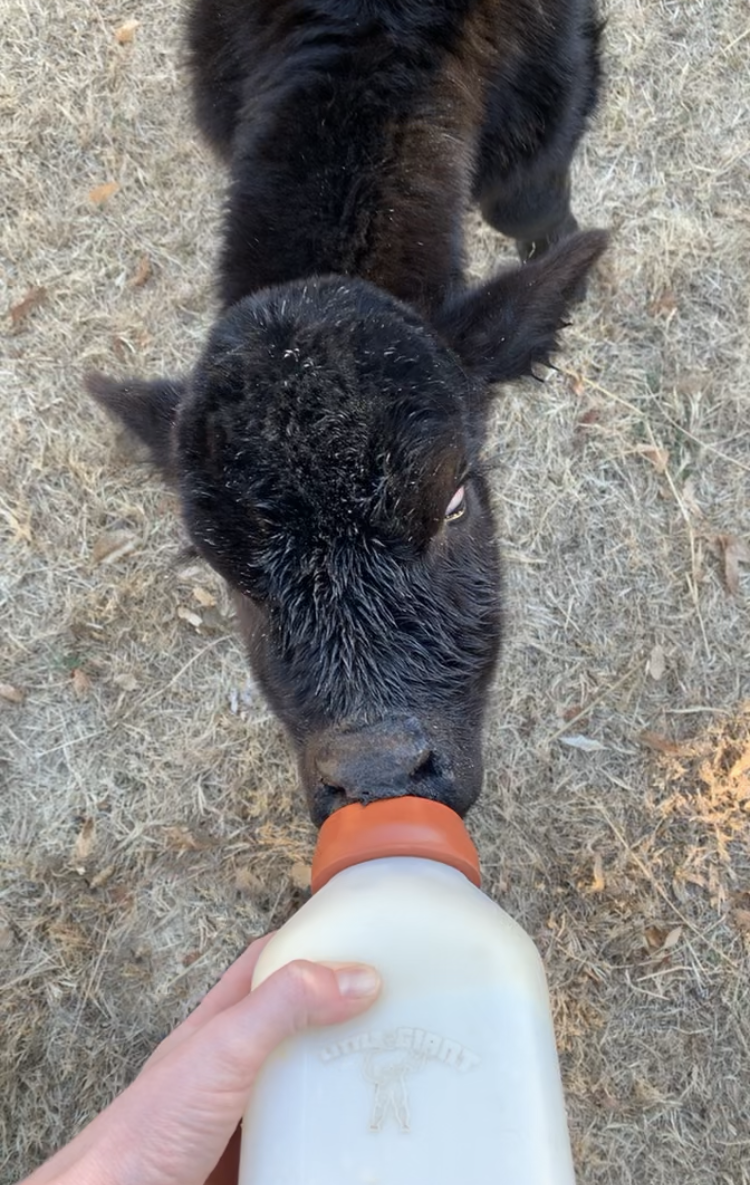Springtime brings flowers, (hopefully) rain showers, the reminder of what it feels like to have the sun warm you skin and of course baby calves—and with this season, there is always a good chance of orphans. This year my husband had to bring home three bottle babies—a pain to him, but instant attachments for me, even though he tells me not to name them until they have taken the bottle well for a few days.
I’ve always been tender-hearted—particularly when it comes to animals. As a child, I would pray that my dad would miss his shot when he went deer hunting and I couldn’t stand the sight of the carcass being processed in our drive-way. Even today I will tear up when I see a dead skunk on the side of the road and don’t expect me to hang around when the ASPCA animal welfare commercials with “In the Arms of an Angel” playing in the background come on. I refuse to watch those, although part of my reasoning comes from the fact that ASPCA uses the funds they collect to kill animals, rather than save them for the scenes they depict in the commercials—but that’s a rant for another time.
At the end of the day this is just the way God made me and I don’t expect to grow out of it. Of the three calves that have come to our house this year, two died within a few days and I bawled for both of them. There is something so innocent and tender about a baby animal and it reminds me of the fragility of life itself. Tomorrow is never promised.
The other bottle calf is still with us, but definitely not out of the woods. Rip (named for a certain rugged cowboy on Yellowstone and not for his condition when we found him) came to our house a few weeks ago and has struggled to really take off due to scours. We are trying everything to improve his chances, but sometimes there is no saving them. The bottle calf business can be taxing when a calf doesn’t make it, but there is no doubt it’s incredibly fulfilling when we can save one.
The people of the agriculture industry are invested in the animals they raise and the crops they grow, and when you care about these things we breathe life into, it’s okay to shed some tears when they don’t survive. It’s sometimes hard to settle for our best when we fall short, but that’s all any of us can really give, and farmers and ranchers give their best every day.
Update: Rip has beat the scours and is back to bellowing for milk again. It’s nice to see him bucking again and finishing his bottle quickly.
Lacey Vilhauer can be reached at 620-227-1871 or [email protected].




